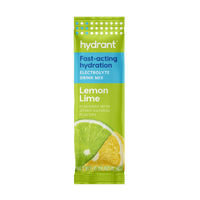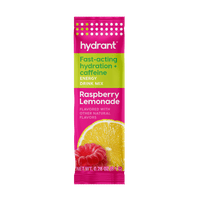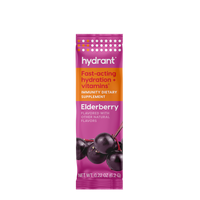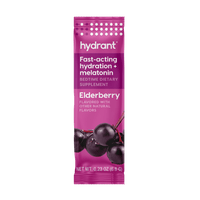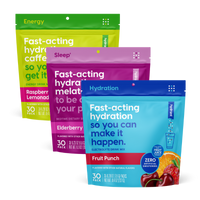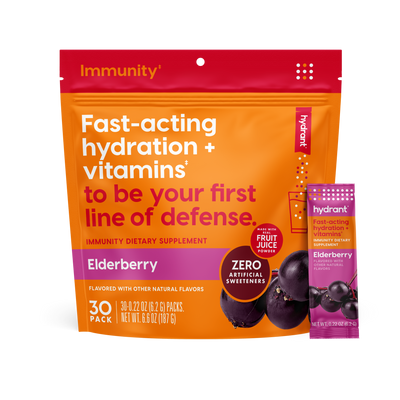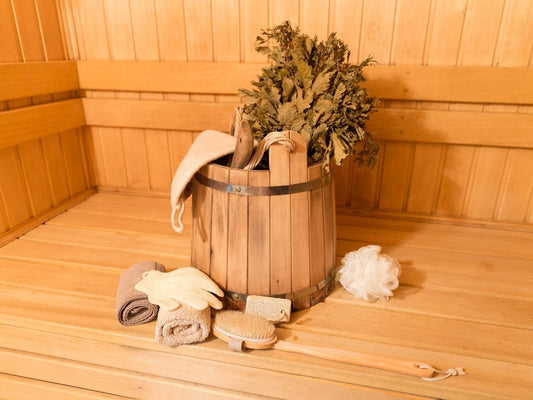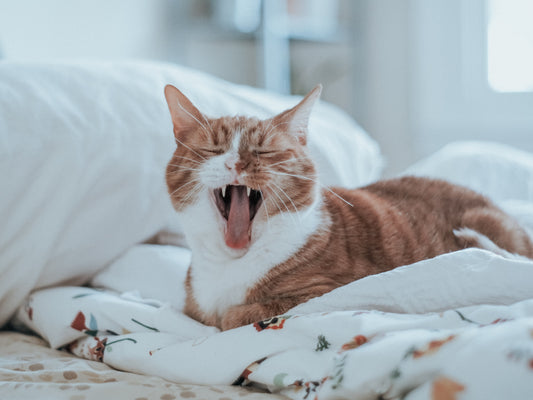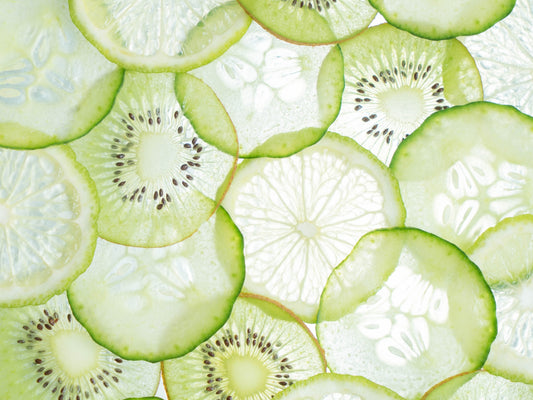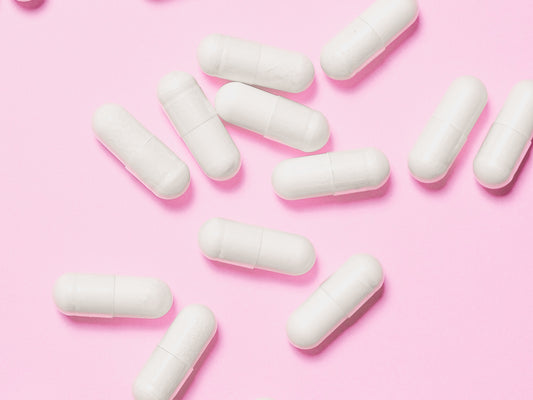Do you feel like you’re always thirsty? This may be a sign of chronic dehydration. Dehydration occurs when your body doesn’t have the water it needs.[1] When this occurs continuously over a long period of time, you may have chronic dehydration.
What are symptoms of chronic dehydration?
Persistent thirst - which can include dry mouth, less saliva, and problems swallowing - is the primary symptom of chronic dehydration.[2] At the same time, you may become dehydrated even before you are thirsty, especially if you are very active, are living in hot or cold temperatures, or are coming down with something.[1] This is particularly true for older adults because thirst tends to decrease with age.[3,4]

Other symptoms of dehydration in adults include infrequent or dark-colored urine, fatigue, dizziness, confusion, and weight loss.[1,2] If you are experiencing severe symptoms, we recommend seeking medical care immediately.
What causes chronic dehydration?
Chronic dehydration may be caused by not taking in enough fluids over a long period of time. This could mean that you are not drinking enough water every day or getting water through your diet. It can also mean that you are losing too much, meaning that even if you drink what seems like a lot of water, sometimes your body might not hold on to as much as it needs.[2]
Why am I always dehydrated?

If you workout a lot or are out in hot weather, you may be losing more water to sweat than you realize. You might also be losing extra water in cold temperatures or while flying because the air is often drier.[1]

Also, some fluids dehydrate you, like alcohol for example. Ever feel like you spent half of your night out waiting in line for the bathroom? Alcohol acts as a diuretic and dehydrates you by causing your body to release more water than it normally would. In the case of alcohol, this effect can be quite substantial.[5]
Finally, sometimes when we’re dehydrated for long periods of time, the sensation of thirst may decrease. In a study by Phillips et al. in The New England Journal of Medicine, seven healthy elderly men became became less thirsty and took in less water after just 24 hours of water deprivation.[6] That means that even though their bodies needed more water, they couldn’t tell! This can lead to a downward spiral of dehydration that is likely to lead to chronic dehydration. In this case, this effect was only seen in a small group of elderly men, so more research is needed to see if it applies to the rest of us.
How can chronic dehydration be treated?
Chronic dehydration is treated by restoring both the depleted water and electrolytes to appropriate levels.[2] Sometimes there is an underlying cause such as a medical condition that must be addressed as well. But in most cases, it simply means drinking more fluids every day. While water is always a great way to get and stay hydrated, too much too fast can lead to overhydration---especially if your body isn’t used to so much water.[7]
That is where a balanced electrolyte solution, such as Hydrant can come in. At Hydrant, we aimed to find the best balance of electrolytes, simplicity, and great flavor to help you get hydrated and stay hydrated.
Are you concerned about your own hydration levels? Take the quiz below to find the best Hydrant for your hydration routine.
References
References can be boring to some people, so we've added a brief note to each to give you an idea of what you'll see if you follow the link. Let us know if you'd like us to go into more detail:
1. Mayo Clinic Staff (2018, Feb 15). Dehydration. (This is a general reference on dehydration from the Mayo Clinic. Probably the most well known hospital group in the USA.)
2. Rogers, K. (2013). The science of nutrition. New York: Britannica Educational Pub. in association with Rosen Educational Services. (This is a book about nutrition, in general, and how different foods affect the body.)
3. Malisova, O., Poulia, K.-A., Kolyzoi, K., Lysandropoulos, A., Sfendouraki, K., & Kapsokefalou, M. (2018). Evaluation of water balance in a population of older adults. A case control study. Clinical Nutrition ESPEN, 24, 95–99. (This paper looks at ~250 elderly people in Greece and how they stay hydrated.)
4. Marszałek, A. (2000). Thirst and Work Capacity of Older People in a Hot Environment. International Journal of Occupational Safety and Ergonomics, 6(sup1), 135–142. (This study compared thirst in younger, middle aged, and older people in hot temperatures. This included 24 participants at rest, and 20 exercising.)
5. Roberts, K. E. (1963). Mechanism of Dehydration Following Alcohol Ingestion. Archives of Internal Medicine, 112(2), 154. (This paper explores why people get dehydrated after drinking alcohol in 20 normal male patients and 70 chronic alcoholic patients.)
6. Phillips, P. A., Rolls, B. J., Ledingham, J. G. G., Forsling, M. L., Morton, J. J., Crowe, M. J., & Wollner, L. (1984). Reduced Thirst after Water Deprivation in Healthy Elderly Men. New England Journal of Medicine, 311(12), 753–759. (This study looked at thirst and responses to 24 hours of water deprivation in 7 healthy younger men and 7 healthy older men.)
7. Lewis, James L (2018, Mar). Hyponatremia - Endocrine and Metabolic Disorders - Merck Manuals Professional Edition. (This is a general reference on hyponatremia from the Merck Manuals, a well-regarded medical textbook.)
